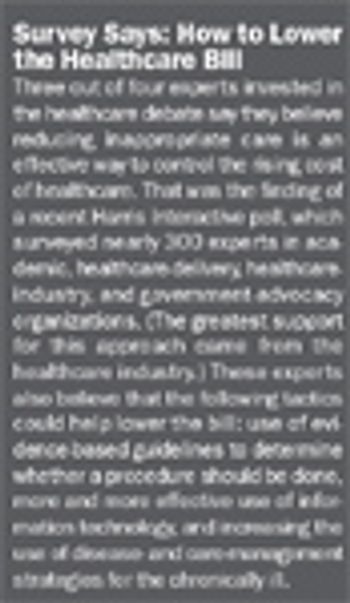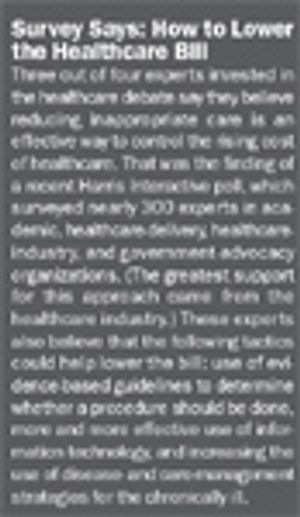
This time, powerful interest groups (like pharma) that sank the Clinton healthcare bill are on the side of change


This time, powerful interest groups (like pharma) that sank the Clinton healthcare bill are on the side of change

As I work with pharma companies, I'm often asked "When will we get major reform of the healthcare system?" and "What will the reformed system look like?" And sometimes "How will we get there?" This is not the same as asking "How should we reform the system?" Or "What should a reformed system look like?"

If pharma is seen as a genuine contributor to the policy debate on comparative effectiveness, it could influence funding, pricing, and coverage decisions

Inappropriate care may account for 25 to 30 percent of the US healthcare bill. Former NEJM editor Arnold Relman used to write that if we could eliminate the unnecessary care, we could save enough to insure all the uninsured.

Myth vs. Reality: The American healthcare system needs a makeover. That requires policies based on accurate information about how our country’s system compares to others’. To start, we must separate fact from fiction.

High-deductible health plans go against the goals of employers, pharma, and the public.They don't reduce out-of pocket drug costs.

The next five years will determine whether pharma retains its position as the most profitable major industry. It will do so only if it succeeds in justifying its profit margins and the high prices that US consumers pay for its products. That will be tough. When Adlai Stevenson was running for president, an enthusiastic supporter gushed, "Oh, Mr. Stevenson, you will win the thinking man's vote.

Published: July 3rd 2007 | Updated: February 13th 2025

Published: October 1st 2007 | Updated: February 13th 2025

Published: June 1st 2008 | Updated: February 13th 2025

Published: February 1st 2007 | Updated: February 13th 2025

Published: April 1st 2007 | Updated: November 15th 2020

Published: April 1st 2006 | Updated: February 13th 2025